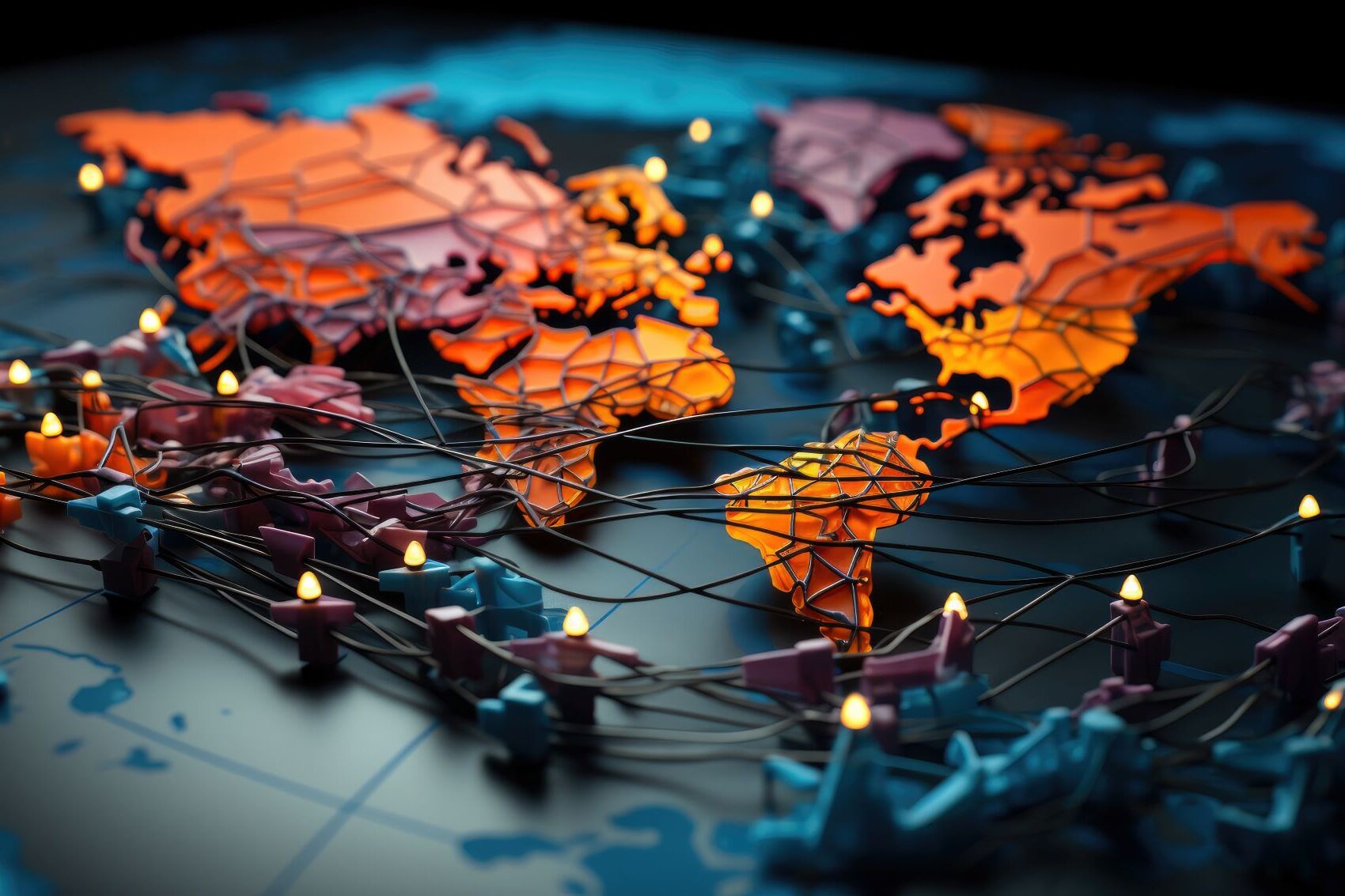
Geopolitical events shape our world in ways both big and small. They influence economies, cultures, and even our daily lives. But what exactly are these events? Geopolitical events refer to significant occurrences that impact the political and geographical landscape of countries and regions. These can include wars, treaties, elections, and natural disasters. Understanding these events helps us grasp why certain countries act the way they do and how global alliances form. Whether you're a student, a history buff, or just curious, knowing about these events can provide valuable insights into the world around us. Ready to learn more? Let's dive in!
What Are Geopolitical Events?
Geopolitical events shape our world, influencing politics, economics, and societies. These events often involve complex interactions between countries, governments, and global organizations. Here are some fascinating facts about significant geopolitical events.
-
The Berlin Wall fell on November 9, 1989, marking the end of the Cold War and the beginning of German reunification.
-
The Cuban Missile Crisis in 1962 brought the world to the brink of nuclear war when the U.S. discovered Soviet missiles in Cuba.
-
The Treaty of Versailles signed in 1919, ended World War I but also set the stage for World War II due to its harsh terms on Germany.
-
The Arab Spring began in 2010, leading to widespread protests and significant political changes in the Middle East and North Africa.
-
The Brexit referendum in 2016 resulted in the United Kingdom voting to leave the European Union, impacting global trade and politics.
Historical Conflicts and Their Impact
Conflicts throughout history have reshaped borders, economies, and societies. Understanding these events helps us grasp their lasting effects.
-
The American Civil War (1861-1865) ended slavery in the United States and preserved the Union.
-
The Napoleonic Wars (1803-1815) spread revolutionary ideas across Europe and led to the rise and fall of Napoleon Bonaparte.
-
The Vietnam War (1955-1975) was a prolonged conflict that deeply affected U.S. politics and society.
-
The Korean War (1950-1953) resulted in the division of Korea into North and South, a situation that persists today.
-
The Iran-Iraq War (1980-1988) was one of the longest conventional wars of the 20th century, causing massive casualties and economic damage.
Economic Shifts and Agreements
Economic events and agreements often have far-reaching consequences, influencing global markets and international relations.
-
The Great Depression (1929-1939) was a severe worldwide economic downturn that led to significant changes in economic policies.
-
The Marshall Plan (1948) was an American initiative to aid Western Europe, helping to rebuild economies after World War II.
-
The North American Free Trade Agreement (NAFTA), signed in 1994, created one of the world's largest free-trade zones between the U.S., Canada, and Mexico.
-
The OPEC oil embargo in 1973 caused a global energy crisis, leading to widespread economic disruptions.
-
The World Trade Organization (WTO) was established in 1995 to regulate international trade and resolve trade disputes.
Political Movements and Revolutions
Political movements and revolutions have often led to significant changes in governance and societal structures.
-
The Russian Revolution in 1917 led to the rise of the Soviet Union and the spread of communism.
-
The French Revolution (1789-1799) overthrew the monarchy and led to the rise of modern democratic ideals.
-
The Indian Independence Movement culminated in 1947, ending British colonial rule and leading to the creation of India and Pakistan.
-
The Chinese Cultural Revolution (1966-1976) was a socio-political movement that aimed to preserve communist ideology by purging remnants of capitalist and traditional elements.
-
The Civil Rights Movement in the United States during the 1950s and 1960s fought for the end of racial segregation and discrimination.
Modern Geopolitical Tensions
Modern geopolitical tensions continue to shape international relations and global stability.
- The Syrian Civil War began in 2011 and has resulted in a humanitarian crisis, with millions displaced and significant regional instability.
The Final Word on Geopolitical Events
Geopolitical events shape our world in ways big and small. From historical conflicts to modern-day alliances, these events influence economies, cultures, and global relations. Understanding them helps us grasp why nations act the way they do and how their actions impact everyone. Whether it's the Cold War, the formation of the European Union, or the rise of China, each event leaves a lasting mark. Staying informed about these events isn't just for history buffs; it's crucial for anyone wanting to make sense of today's world. So, next time you hear about a geopolitical event, remember its significance goes beyond borders and headlines. It’s a piece of the puzzle that makes up our complex, interconnected world. Keep learning, stay curious, and you'll always be a step ahead in understanding the forces that shape our lives.
Was this page helpful?
Our commitment to delivering trustworthy and engaging content is at the heart of what we do. Each fact on our site is contributed by real users like you, bringing a wealth of diverse insights and information. To ensure the highest standards of accuracy and reliability, our dedicated editors meticulously review each submission. This process guarantees that the facts we share are not only fascinating but also credible. Trust in our commitment to quality and authenticity as you explore and learn with us.


